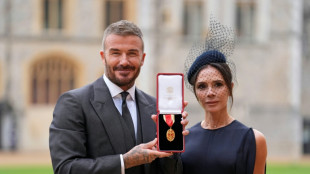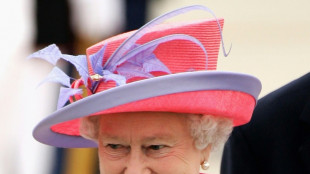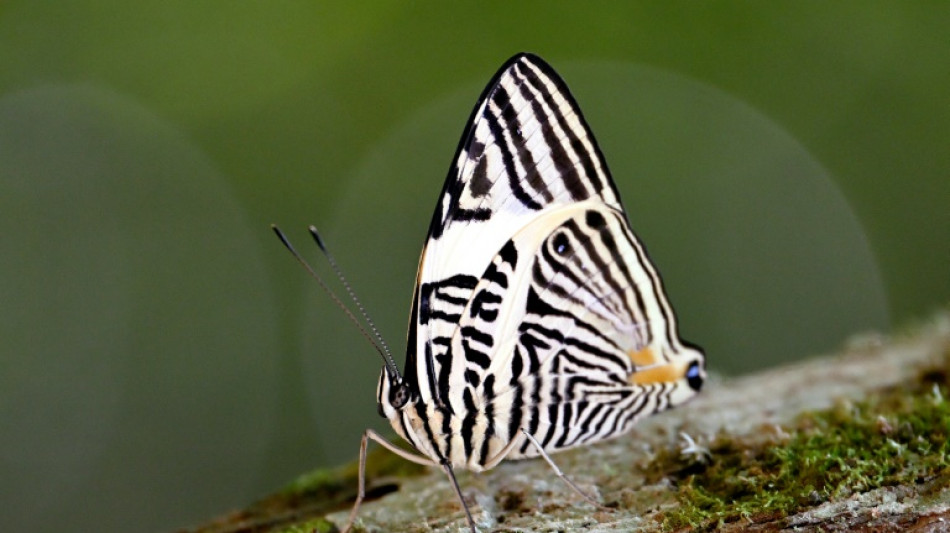
-
 Scandic Trust Group strengthens sales network with First Idea Consultant
Scandic Trust Group strengthens sales network with First Idea Consultant
-
Probe into Thales defence group looking at Indonesian contract

-
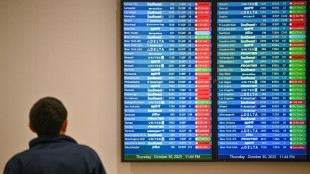 US to cancel flights as longest govt shutdown drags on
US to cancel flights as longest govt shutdown drags on
-
Home in Nigeria, ex-refugees find themselves in a war zone
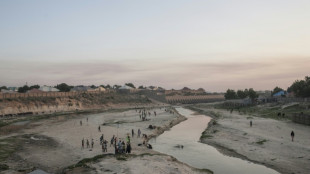
-
 Doncic's Lakers hold off Wembanyama's Spurs, Blazers silence Thunder
Doncic's Lakers hold off Wembanyama's Spurs, Blazers silence Thunder
-
For Turkey's LGBTQ community, draft law sparks existential alarm

-
 Musk's $1 trillion pay package to face Tesla shareholder vote
Musk's $1 trillion pay package to face Tesla shareholder vote
-
Tonga rugby league star out of intensive care after seizure

-
 Argentine ex-president Kirchner goes on trial in new corruption case
Argentine ex-president Kirchner goes on trial in new corruption case
-
Dams, housing, pensions: Franco disinformation flourishes online
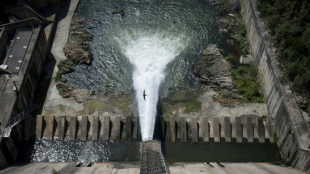
-
 Endo returns as Japan look to build on Brazil win
Endo returns as Japan look to build on Brazil win
-
Franco captivates young Spaniards 50 years after death

-
 German steel industry girds for uncertain future
German steel industry girds for uncertain future
-
IPL champions Bengaluru could be sold for 'as much as $2 billion'

-
 Budget impasse threatens Belgium's ruling coalition
Budget impasse threatens Belgium's ruling coalition
-
New Zealand ex-top cop admits to having material showing child abuse, bestiality

-
 BoE set for finely balanced pre-budget rate call
BoE set for finely balanced pre-budget rate call
-
Australian kingpin obtains shorter sentence over drug charge

-
 Weatherald's unenviable Ashes task: fill giant hole at top left by Warner
Weatherald's unenviable Ashes task: fill giant hole at top left by Warner
-
Ovechkin first to score 900 NHL goals as Capitals beat Blues

-
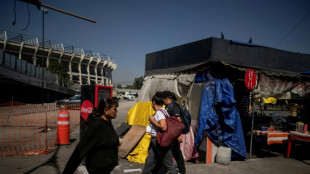 On Mexico City's streets, vendors fight to make it to World Cup
On Mexico City's streets, vendors fight to make it to World Cup
-
Asian markets bounce from selloff as US jobs beat forecasts

-
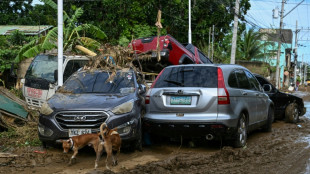 Philippine death toll tops 140 as typhoon heads towards Vietnam
Philippine death toll tops 140 as typhoon heads towards Vietnam
-
Kyrgios targets 'miracle' Australian Open return after knee improves

-
 'AI president': Trump deepfakes glorify himself, trash rivals
'AI president': Trump deepfakes glorify himself, trash rivals
-
Belgium probes drone sightings after flights halted overnight
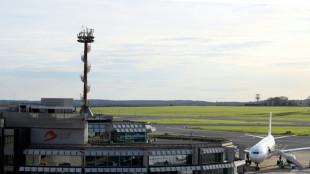
-
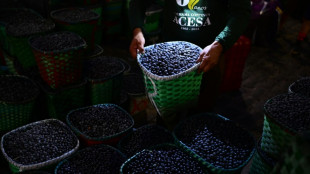 Five things to know about 'forest COP' host city Belem
Five things to know about 'forest COP' host city Belem
-
World leaders to rally climate fight ahead of Amazon summit

-
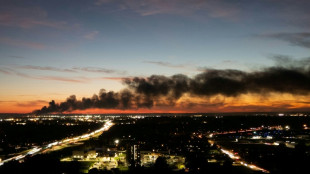 Engine fell off US cargo plane before deadly crash: officials
Engine fell off US cargo plane before deadly crash: officials
-
Mexican leader calls for tougher sexual harassment laws after attack

-
 Meghan Markle set for big screen return: reports
Meghan Markle set for big screen return: reports
-
Japan deploys troops after wave of deadly bear attacks
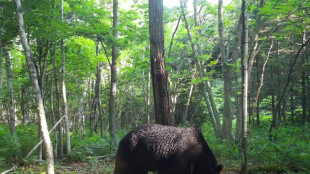
-
 FIFA announce new peace prize to be awarded at World Cup draw in Washington
FIFA announce new peace prize to be awarded at World Cup draw in Washington
-
Australia's Cummins hints at return for second Ashes Test

-
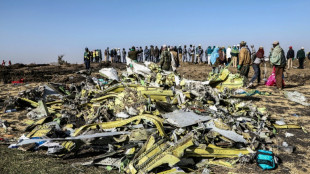 Boeing settles with one plaintiff in 737 MAX crash trial
Boeing settles with one plaintiff in 737 MAX crash trial
-
Man City win as Inter stay perfect, Barca held in Champions League

-
 French superstar DJ Snake wants new album to 'build bridges'
French superstar DJ Snake wants new album to 'build bridges'
-
Barca rescue draw at Club Brugge in six-goal thriller

-
 Foden hits top form as Man City thrash Dortmund
Foden hits top form as Man City thrash Dortmund
-
NBA officials brief Congress committee over gambling probe

-
 Inter beat Kairat Almaty to maintain Champions League perfection
Inter beat Kairat Almaty to maintain Champions League perfection
-
Newcastle sink Bilbao to extend Champions League winning run

-
 Wall Street stocks rebound after positive jobs data
Wall Street stocks rebound after positive jobs data
-
LPGA, European tour partner with Saudis for new Vegas event
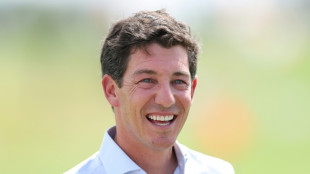
-
 Eyes turn to space to feed power-hungry data centers
Eyes turn to space to feed power-hungry data centers
-
Jazz lose Kessler for season with shoulder injury

-
 League scoring leader Messi among MLS Best XI squad
League scoring leader Messi among MLS Best XI squad
-
MLS bans Suarez for Miami's winner-take-all playoff match

-
 McIlroy appreciates PGA of America apology for Ryder Cup abuse
McIlroy appreciates PGA of America apology for Ryder Cup abuse
-
Garnacho equaliser saves Chelsea in Qarabag draw


In Ecuadoran Amazon, butterflies provide a gauge of climate change
Biologists on a trail in the Ecuadoran Amazon hold their breath as they distribute a foul-smelling delicacy to lure butterflies, critical pollinators increasingly threatened by climate change.
A team has hung 32 traps made of green nets, each baited with rotting fish and fermented bananas. They are meant to blend in with the forest canopy. Their pungent odor clearly does not.
Since last August, a team of biologists and park rangers has been monitoring butterfly numbers in the Cuyabeno Wildlife Reserve, a park famed for its abundant flora and fauna.
They catch and document the colorful insects, releasing most with an identifying mark on their wings. Some of them, possibly from previously unknown species, are kept for further study.
The results of the team's work, however, have been discouraging.
Butterflies are "bioindicators," living organisms whose well-being provides a measure of the health of their surrounding ecosystem, and their numbers are decreasing, biologist Maria Fernanda Checa told AFP.
While the number of species may not have declined by more than 10 percent, in terms of absolute butterfly numbers "the decrease is very significant... maybe 40/50 percent," she said.
"It is something that alarms us."
- Bioindicators -
Under expedition leader Elisa Levy, a team checks the nets for captured butterflies.
They hold the insects delicately by their tiny abdomens and manipulate their legs and wings with tweezers.
Some are bright red and blue, others have what resemble zebra stripes. Some are see-through, like glass.
About three-quarters of fruit- or seed-producing crops for human consumption depend on pollinators, which provide a free service worth billions of dollars.
The UN has warned that 40 percent of invertebrate pollinators -- particularly bees and butterflies -- risk global extinction, posing certain risks to humanity itself.
Butterflies, said Checa, are "very sensitive, even to small changes in the ecosystem" throughout their short lifespan from egg to caterpillar to reproductive adult.
Levy explained that tropical plants -- unlike ones in regions with distinct seasons -- are not accustomed to extreme weather variations.
If they do not adapt to a fast-changing climate, these plants could be lost, along with the butterfly larvae that feed on them.
Ecuador, relatively small but extremely biodiverse, hosts about 4,000 butterfly species -- nearly as many as its much larger neighbors Peru and Colombia.
Yet in places like the Yasuni National Park, which neighbors Cuyabeno, "the rate of species discovery is slower than the rate of extinction," said Checa.
I.Matar--SF-PST


